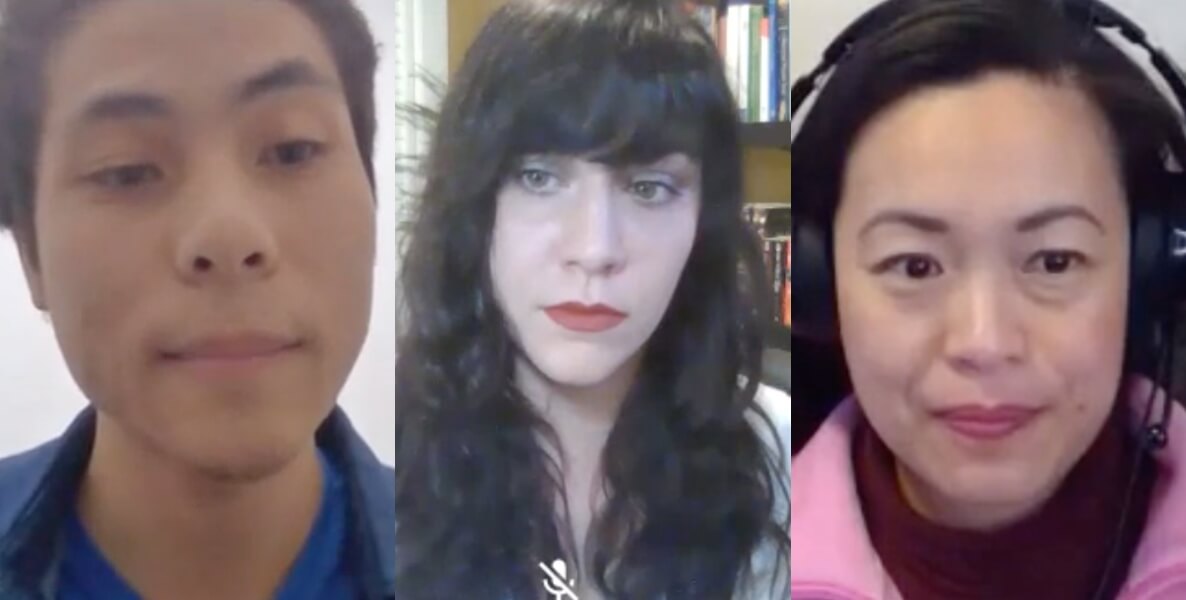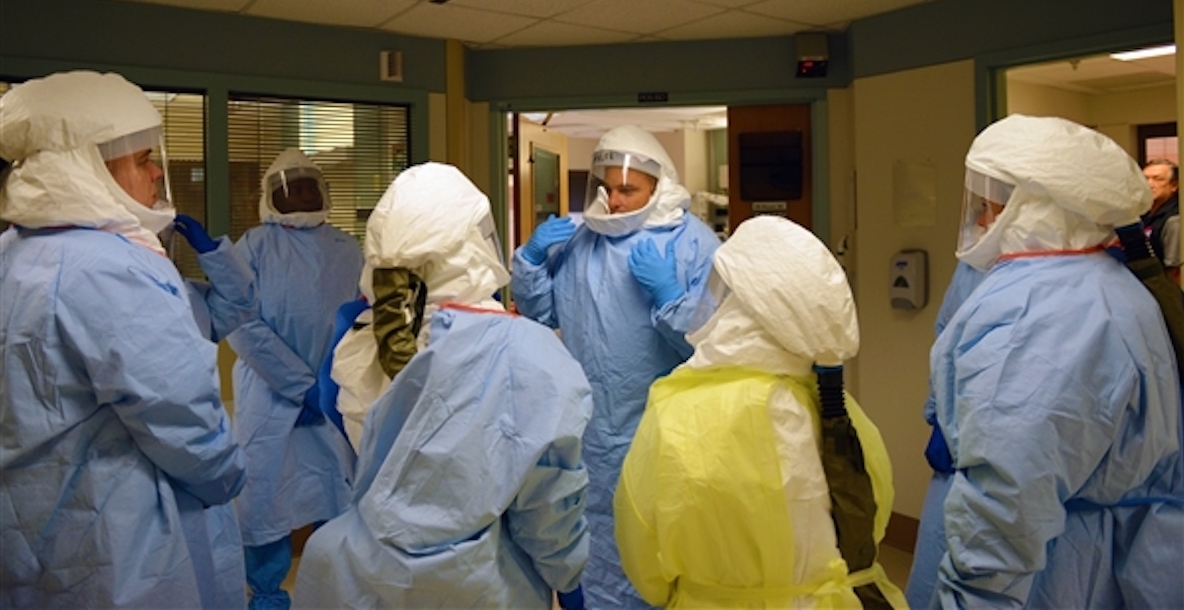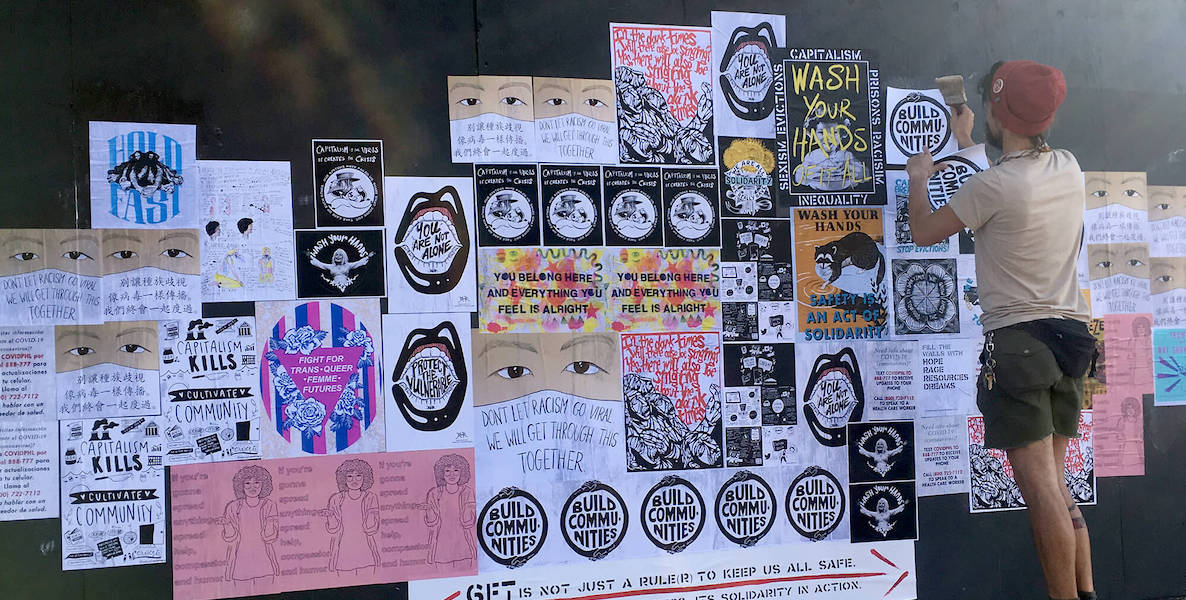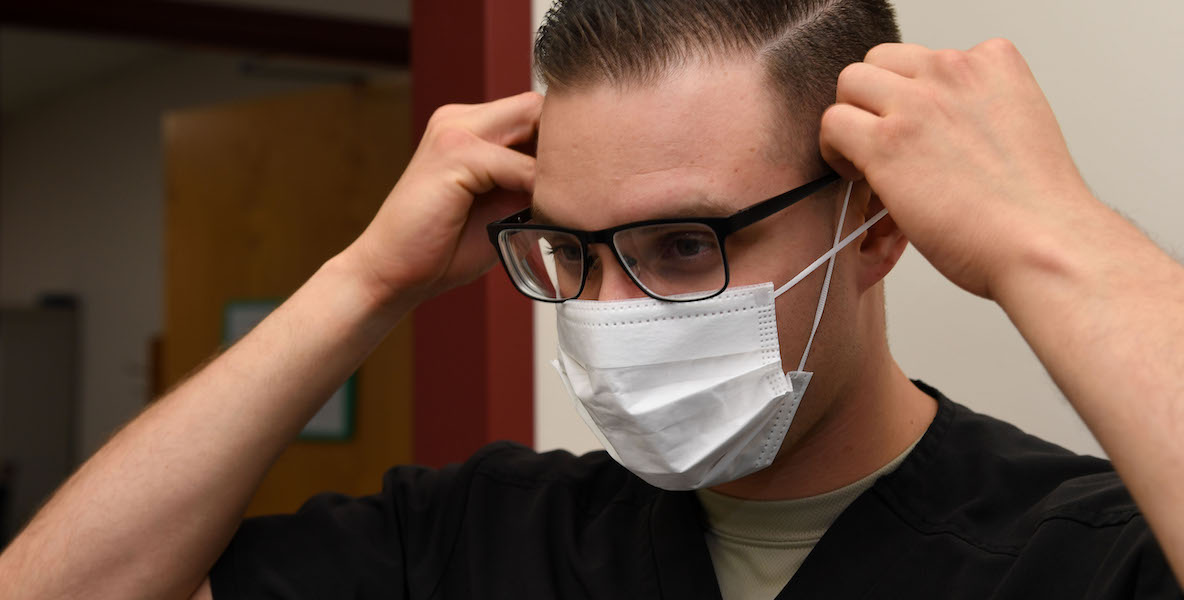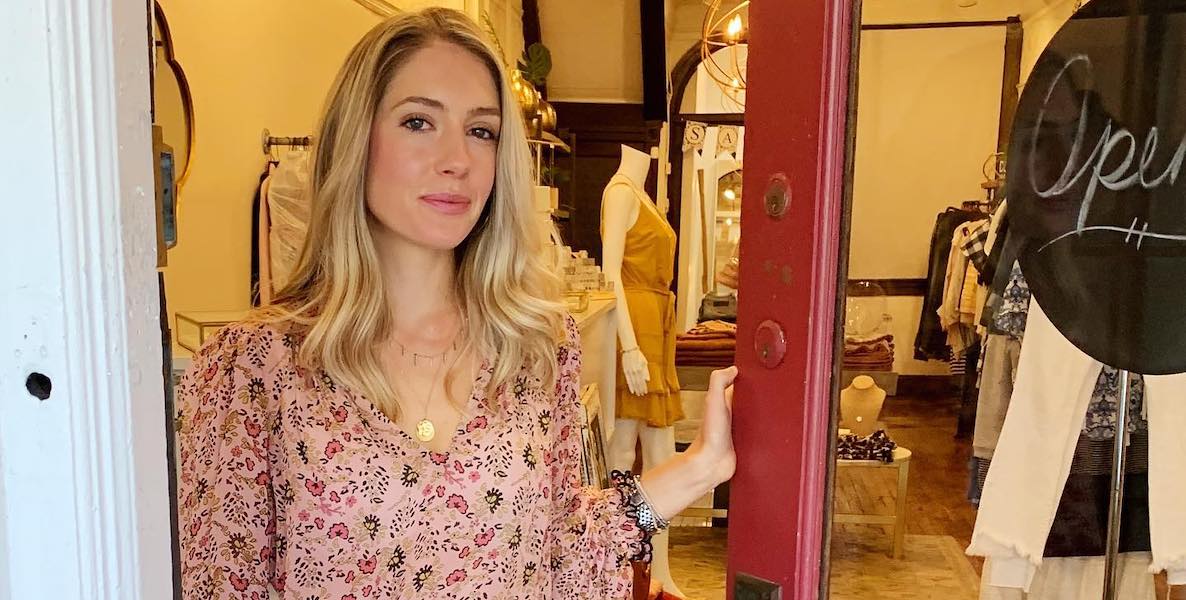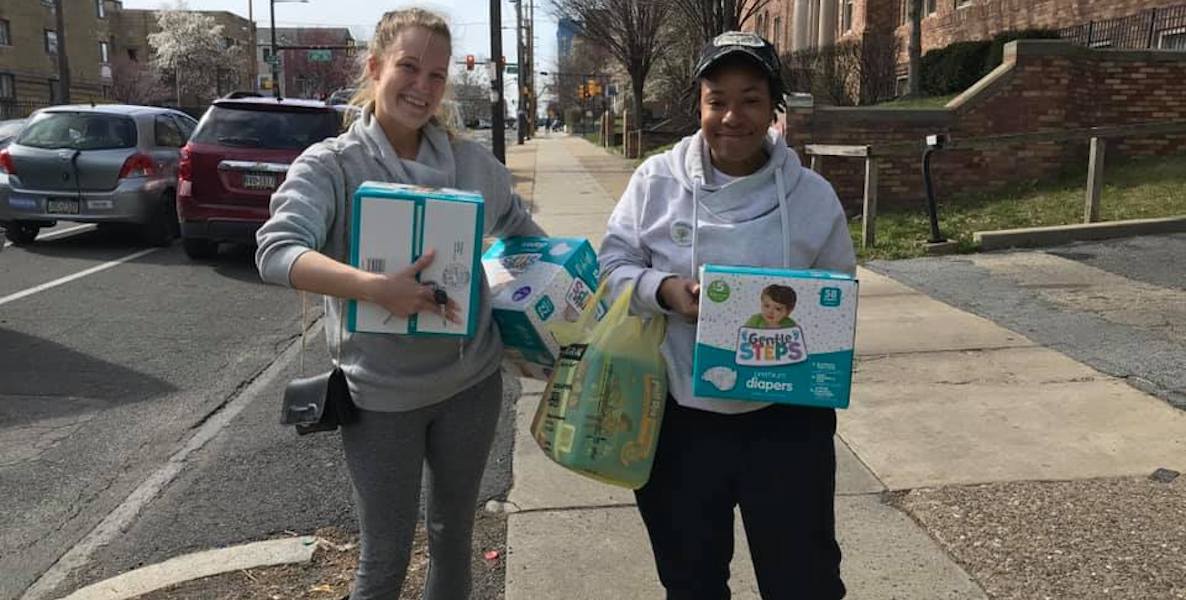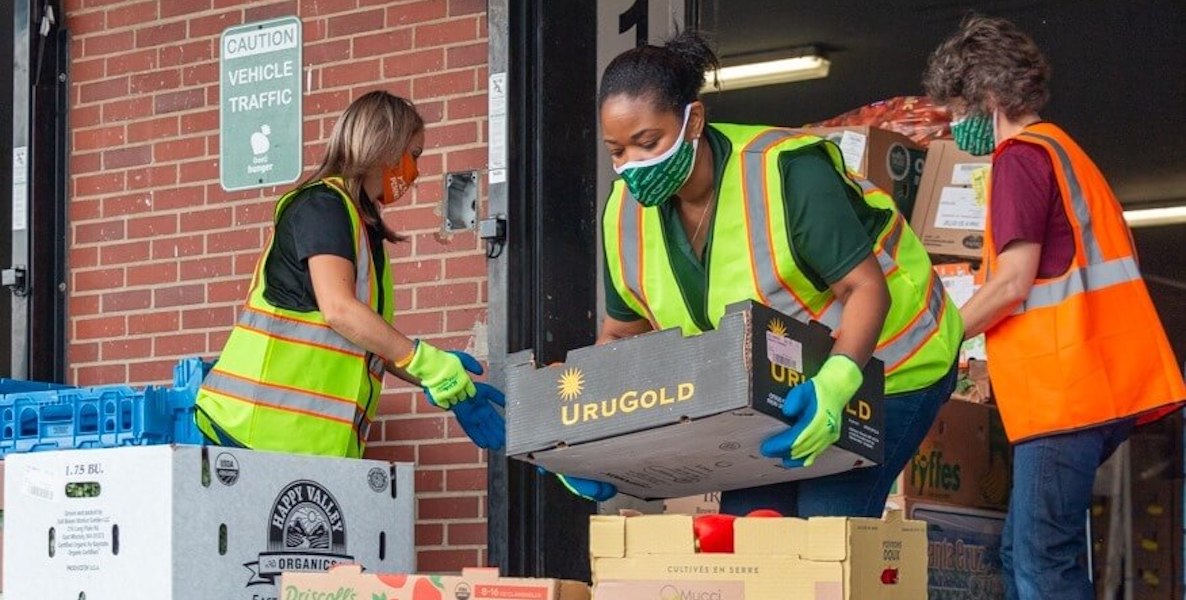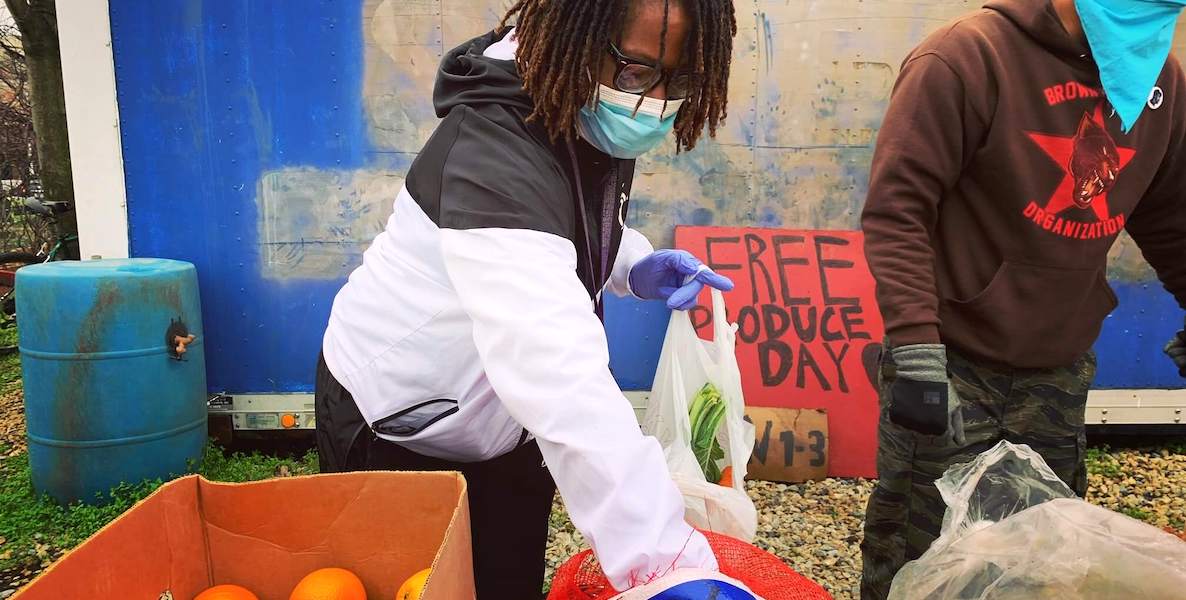In normal times, the Sharswood garden known as North Philly Peace Park comes alive once a season with dozens of families milling around garden boxes, purple-and-orange-painted tires that have been transformed into flower planters, small trees recently planted to provide future shade.
With tables of fresh fruits and vegetables spaced around the park, the gathering looks like any other Philadelphia farmer’s market in any other neighborhood—but with one difference. Everything is free.
Support the Peace ParkDo Something
During the Covid-19 pandemic, the Peace Park is considered a life-sustaining business, and it has stepped up its work to meet the increased need. They plan to continue distributing produce once a month during the pandemic. The next free produce day will be held towards the end of May.
Since the city’s stay-at-home-order started, North Philly Peace Park has distributed produce to more than 500 families in the surrounding community, as well as staples like rice, beans, eggs and bread, so that people can make complete meals with their free produce.
And in addition to their free produce days in Sharswood, they’re distributing care packages of produce and staple goods to seniors in the senior care program at Afrocentricity International Philadelphia and those living in the Philadelphia Housing Authority’s Sharswood Tower.
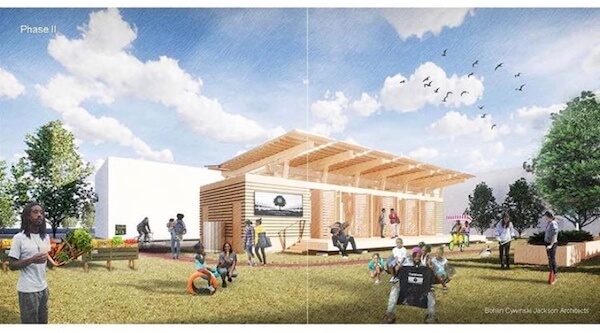
X says that the group felt it was essential to continue providing free produce, as many people in Sharswood have lost their jobs, and their support systems, due to Covid-19. Compounding that problem, SEPTA’s reduced public transportation schedule has made it difficult for some residents to access the free food that’s being given out by the city.
“Many people feel like a lot of [the] organizations that once supported them have now disappeared because of the government lockdown,” X says. “People feel like a lot of organizations have failed the community during this time.”
Distributing produce to families in need isn’t the only way the Peace Park has During the pandemicMORE WAYS TO HELP
“People’s spirits are high and they’re happy that we’re doing this,” X says. “There’s been an overwhelming amount of appreciation and support.”
Bringing quality fruit and vegetables to Sharswood has always been a part of the Peace Park’s mission. Founded in 2012, North Philly Peace Park began when a group of activists and artists led by Tommy Joshua, a Sharswood native, decided to take over a piece of vacant land on Bolton Street with the intention of building an urban farm that would support and empower the community. They cleared the lot of debris, planted a garden in the shape of a peace sign, and began offering classes for children in art, ecology, and music.
 They started affectionately referring to their neighborhood and community as “Peacetown,” as a way to signal the kind of future they wanted for both the space and the neighborhood.
They started affectionately referring to their neighborhood and community as “Peacetown,” as a way to signal the kind of future they wanted for both the space and the neighborhood.
“Our community was suffering from all these problems, but we had a bunch of open land that wasn’t being utilized,” X says. “So our founder got activists, community organizers, educators, artists, and everyday community people and families together, and we utilized this model of taking over vacant land to build urban farms and schools.”
Located in one of the city’s food deserts, the garden helped the group tackle issues of food insecurity and health disparities within North Philly. Currently, 52.5 percent of Sharswood’s residents live in poverty. Health issues are a major barrier for people living in the neighborhood, with around 35 percent of residents saying that health issues made it difficult for them to find and retain employment. In North Philly more broadly, about 30 percent face food insecurity and in some parts of Sharswood, residents have to walk up to 20 minutes to reach their closest grocery store.
“That’s basically our mission,” X says, “to be a self-sufficient, self-determined, independent community where things that we need are right in our community, and we don’t need to ask for outside help.”
Many people don’t have the option to purchase healthier foods, like fruits and vegetables, even if they could afford them. Over 80 percent of retail food stores in the city have a low produce supply, a recent report found, and many of the grocery stores with high produce supplies are concentrated in just five neighborhoods: Center City, University City, West Mount Airy, Chestnut Hill, and Upper Roxborough. A lack of quality produce can lead to health conditions, such as diabetes and heart disease, which studies have shown tend to disproportionately affect black communities.
“Through helping people feed themselves fresh produce, we believe urban farms will help offset the health disparities that we face,” X says.
Bolton Street was the park’s primary location until 2015, when they were displaced by the Philadelphia Housing Authority’s $500 million redevelopment plan for the area. After several months of clashing over the land, the two groups reached an agreement and, in 2016, North Philly Peace Park signed a lease with PHA for the lot at 22nd and Jefferson.
How Philadelphians are helpingRead More
“The Peace Park is setting precedents for the next generation and the generation after that. When we work on the land, the next generation’s children can have a space in our community where they can come to grow food. They can have a school where they can go learn STEAM education. They can have a space where entrepreneurship and small business incubation is prevalent,” X says. “This work is not just for now. We have a 200-year vision that the generations after will be able to continue to do this work in this space.”
While Covid-19 has put those initiatives on hold, the group will continue to focus on distributing produce and masks to residents in need, doing whatever they can to nurture and support the Sharswood community.
“That’s basically our mission,” X says, “to be a self-sufficient, self-determined, independent community where things that we need are right in our community, and we don’t need to ask for outside help.”
The Citizen is one of 19 news organizations producing Broke in Philly, a collaborative reporting project on solutions to poverty and the city’s push towards economic justice. Follow the project @BrokeInPhilly.
Photos courtesy Pili X


